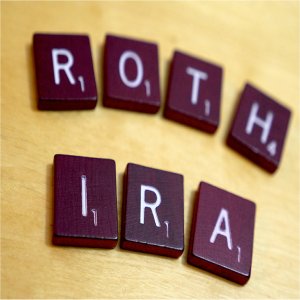Should You Buy an Investment Property with Your IRA or 401k?

A variety of assets can be purchased with IRAs (as opposed to a 401(k), which restricts your investment options). However, you must assess what you gain and lose if you intend to use your 401(k) or IRA to make real estate investments.
There are numerous methods for investing in real estate. Holding such investments in a retirement account can sometimes be beneficial, but it can also be a massive mistake.
What exactly is an IRA?
To save money for retirement, you can open an Individual Retirement Account (IRA) with a bank, broker, mutual fund, insurance, or other financial institution. The goal of the account is the same regardless of where it is held. It’s a place to have assets to utilize during retirement. Unlike 401(k)s, which restrict how funds can be invested, IRAs allow purchasing of various assets. Some IRAs are self-directed, allowing you to choose how you want to invest, including CDs, government bonds, mutual funds, stocks, and even investment property.
Traditional IRAs and Roth IRAs are two of the most frequent types. They differ based on the tax laws that govern each form of IRA account, precisely when and how the account holder receives a tax break.
What exactly is a 401(k)?
Many organizations, but not all, set up 401(k) retirement plans for their employees and regularly contribute to them. You can choose whether to enroll in the plan with a set contribution or a percentage of your pay. This sum is then withdrawn from your paycheck and invested in your 401(k) on a pre-tax basis. As of 2019, individuals can contribute up to $19,000 (or $25,000 if over 50) to their 401(k) each year.
Each plan offers a restricted number of investment possibilities from which to pick. If you don’t choose a plan, the company offering the plan will enroll you in their default investment.
You will be taxed when you withdraw cash from your 401(k) in retirement. Remember, this is the single most important thing to do. Whether the funds you remove were contributed or earned from your investment makes no difference. In any case, you’ll need to include the money as part of your taxable income.
Avoid purchasing physical goods directly.
Using a self-directed IRA or 401(k) to make a real estate acquisition is highly unadvised. Despite their numerous benefits, retirement accounts have little room for investments like rental homes.
The first advantage is cash flow. A solid real estate investment will generate positive cash flow for most months. Without major maintenance or an extended vacancy, you can count on steady rent checks that will cover your costs. You can use that money for rentals or assets like equities and bonds. You might also use that money to fuel your lifestyle, pay for essentials, or do whatever you want. If you invest in a rental property with your 401(k)-plan money, you’ll have fewer options for how to spend that money. Unless you’ve reached the age where you can withdraw funds without penalty, you’ll have to reinvest it.
The second advantage is that rental homes are tax-efficient. You can offset your revenue with a large number of expenses. Expenses like these include depreciation and mortgage payments (even if the value is appreciating in real life). If you utilize a tax-deferred retirement plan, you won’t have to pay taxes until you withdraw the funds, but you won’t be able to take advantage of some of the tax savings. As a result, you may end up paying more taxes in the long run.
The Benefits of Using an IRA to Purchase Real Estate
Using a self-directed IRA to buy real estate has two benefits: First, the asset you acquire may increase in value, and second, all your income will be tax-deferred while you own it. This includes rental revenue as well as capital gains.
The Benefits of Using a 401(k) to Purchase Real Estate
The biggest advantage of purchasing an investment property through a 401(k) is that you can do so with a tax-free and penalty-free loan.
There are further tax advantages to consider. For example, if a 401(k) is used to purchase a property, all income earned is not taxed. Instead, the earnings are deposited into the 401(k) plan. The owner will never see the money but can access it in their 401(k) when it comes.
One major exception to this rule: Investments in rental property can be made with more than just 401(k) loans. Assume you obtain the maximum loan amount ($50,000) and use the profits to purchase a property that requires a $200,000 down payment. The property then generates $2,000 in rental income per month. The 401(k) would be entitled to $500 of that revenue monthly. Even if the contributing individual is the lone investor in the transaction, the remaining funds will be dispersed evenly to other investors. In the second situation, the remaining 75% of monthly rental money would be returned to him to be spent as he sees fit.
Contact Information:
Email: [email protected]
Phone: 9568933225
Bio:
Rick Viader is a Federal Retirement Consultant that uses proven strategies to help federal employees achieve their financial goals and make sure they receive all the benefits they worked so hard to achieve.
In helping federal employees, Rick has seen the need to offer retirement plan coaching where Human Resources departments either could not or were not able to assist. For almost 14 years, Rick has specialized in using federal government benefits and retirement systems to maximize retirement incomes.
His goals are to guide federal employees to achieve their financial goals while maximizing their retirement incomes.






